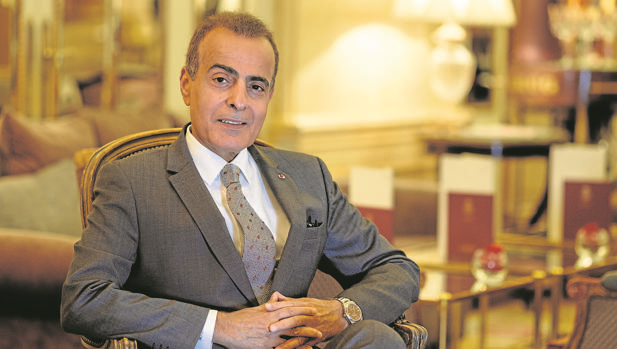Qatar's Ambassador to Spain: QNA Did Not Distort News

Madrid/ Information Office/ 18 September 2017/ HE Qatar's Ambassador to Spain Mohammed Jaham Al Kuwari said that dialogue to solve the Gulf crisis was interrupted after alleged distortion of news by Qatar News Agency (QNA), stressing that QNA did not distort news.
In an interview with Spanish ABC newspaper, Al Kuwari said that HH the Emir Sheikh Tamim bin Hamad Al-Thani spoke, on September 8, with the Saudi Crown Prince after another telephone conversation between HH the Emir and US President Donald Trump, who decided to mediate in the crisis and coordinate this telephone call in order to advance the dialogue process.
During the phone conversation, the Saudi Crown Prince made a proposal to HH the Emir for the appointment of envoys to resolve controversial issues.
After that, Qatar News Agency reported the news of the telephone call, stating that the call was coordinated by President Trump, while Saudi Arabia did not mention that and only stated that it was HH the Emir who initiated the call. Riyadh claimed that we "distorted" the news, and announced the interruption of dialogue. And this is what really happened, he added.
Asked about the reason for the angry reaction from Riyadh, His Excellency said: "We are committed to informing our public, and I have the impression that the Saudi regime is pursuing another policy."
Al Kuwari stressed that the closure of Al Jazeera is an internal affair related to the sovereignty of Qatar, adding that the rejection of an agreement between the State of Qatar and Turkey or not establishing relations with some countries is also a flagrant attack on the sovereignty of Qatar.
He added that Al Jazeera had established an unprecedented platform for freedom of the press, through which intellectuals express their opinions. For Egypt or Saudi Arabia, this margin of freedom of expression is disturbing. Why? Because there are two visions in the Arab world: the first wants reform and the second wants to maintain the status quo, and Al Jazeera pursues the first one. The regimes in Saudi Arabia, the UAE and Egypt want the continuation of the current regimes, he said, adding that if something happened in the streets of Saudi Arabia, Al Jazeera is obliged to inform people of what is happening, whether it is good for the authorities or not.
In response to a question about Riyadh's listing of alleged terrorist organizations or associated individuals staying in Qatar, HE the Ambassador said: "We have been given a list of this, and we are ready to discuss this. The list includes organizations working on important projects with the United Nations. Thus, the accusation by Saudi Arabia for these organizations surprises us."
As for the damage caused by the siege imposed on the State of Qatar, HE the Ambassador explained that the damage was not only to Qatar but also to the rest of the Gulf States, pointing out that its initial impact was avoided in only two days, and the markets in the country were re-supplied goods.
"The four countries that impose the siege are not industrial countries, they buy from abroad to resell, so it is enough that we found new direct shipping sources in Europe and Asia," he said.
HE the Ambassador pointed out that the most affected in this crisis are the peoples of the Gulf countries and not the economic relations, as our Arab societies are closely interrelated. It is natural that the families are distributed in Qatar, Saudi Arabia and the UAE. "They are the ones who pay the price of the blockade and that is not fair."

